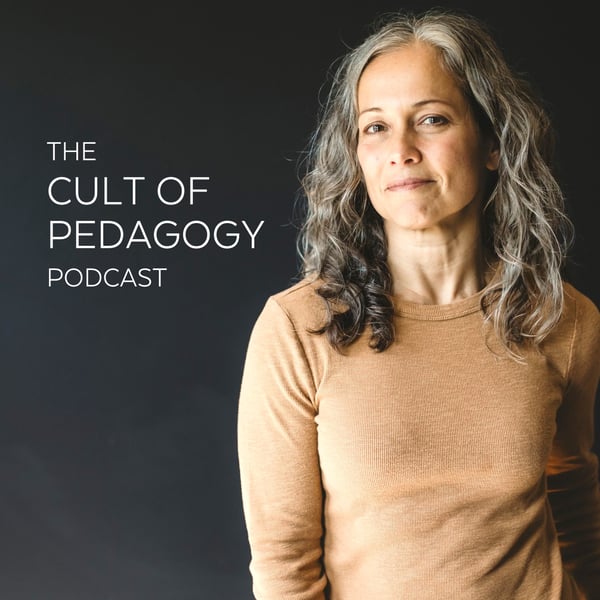253: Fully Seen and Fully Known: Teaching that Affirms Disability
The Cult of Pedagogy Podcast
Jennifer Gonzalez
4.8 • 2.4K Ratings
🗓️ 8 June 2025
⏱️ 62 minutes
🧾️ Download transcript
Summary
Most special education efforts have focused on giving students with disabilities better access to the curriculum — but access alone isn't enough. In this episode, I talk with Amy Tondreau and Laurie Rabinowitz, authors of the book Sustaining Cultural and Disability Identities in the Literacy Classroom, about disability-sustaining pedagogy, a framework that helps students embrace disability as a cultural identity. We explore practical ways teachers can make their classrooms more inclusive, empowering, and identity-affirming for disabled students.
Thanks to Alpaca and the School Me Podcast for sponsoring this episode.
To read a full transcript of this episode and find links to related resources, visit cultofpedagogy.com/disability-sustaining.
Transcript
Click on a timestamp to play from that location
| 0:00.0 | This is Jennifer Gonzalez, welcoming you to episode 253 of the Cult of Pedagogy podcast. |
| 0:05.9 | In this episode, we'll talk about the things teachers can do to help build and sustain disability identities for their students. Over the past few decades, significant strides have been made in the field of special education |
| 0:30.6 | to make every classroom a place where students, regardless of ability or disability, can reach their full potential. Most of that work has been |
| 0:39.6 | driven by a focus on access, working to ensure that students with disabilities aren't left behind |
| 0:45.6 | academically. And while this is obviously an important goal, it has sometimes been viewed |
| 0:51.1 | through a deficit lens, where there is one default way of doing |
| 0:54.7 | school, and then there are strategies for helping students with disabilities fit better into |
| 1:00.2 | that default way. |
| 1:02.6 | While these efforts have succeeded in improving access, they still position disabled |
| 1:07.3 | students as lacking in some way. What's been missing is an approach that affirms and |
| 1:13.6 | sustains disability as a source of identity and pride. That's the focus of my conversation with |
| 1:20.5 | Amy Tondro and Lori Rabinowitz, authors of the book Sustaining Cultural and Disability Identities in the Literacy Classroom, |
| 1:28.9 | K-6. Drawing from their own experiences as educators, as well as the voices of over 20 classroom |
| 1:35.6 | teachers, their work introduces the concept of disability-sustaining pedagogy, an approach |
| 1:41.9 | that goes beyond access to help students with disabilities take pride in who they are. |
| 1:48.0 | While their book focuses primarily on literacy instruction at the elementary level, it offers |
| 1:53.2 | valuable insights and practices for anyone who teaches or works with disabled students. |
| 1:59.0 | In this episode, we talk about how this idea builds on the framework |
| 2:02.6 | of culturally sustaining pedagogy, what it means to treat disability as a cultural identity, |
| 2:08.8 | and the specific things teachers can do to create classrooms where disabled students feel, |
| 2:14.7 | as Tondro puts it, fully seen and fully known. Before we get started, I'd like to |
| 2:20.8 | thank Alpaca for sponsoring this episode. I've been a big fan of Alpaca for a while now, |
... |
Please login to see the full transcript.
Disclaimer: The podcast and artwork embedded on this page are from Jennifer Gonzalez, and are the property of its owner and not affiliated with or endorsed by Tapesearch.
Generated transcripts are the property of Jennifer Gonzalez and are distributed freely under the Fair Use doctrine. Transcripts generated by Tapesearch are not guaranteed to be accurate.
Copyright © Tapesearch 2026.

